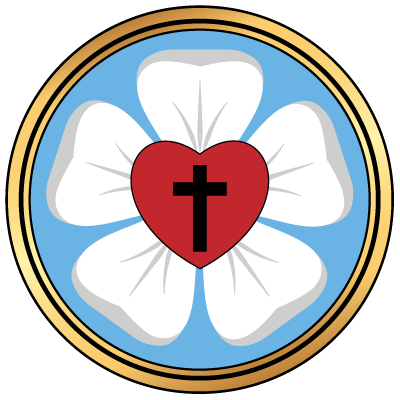Four words can be used to describe the content and form of our worship at Zion:
liturgical, evangelical, sacramental, and confessional.
Liturgical: Lutheran worship puts the focus on Jesus Christ, who comes to serve us through His Word and sacraments. The two main parts of the Divine Service are 1) the proclamation of the Word of God through the confession of sins, Scripture readings, and the sermon and 2) the celebration of the Lord’s Supper. Services at Zion use the liturgy and rites of the historic Church. The pastor and congregation speak or sing responsively or together, and most of the liturgy is taken directly from the Holy Scriptures. Congregational singing is a hallmark of Lutheran worship, and at Zion we use both ancient and modern hymns to praise God and teach the faith. Those who experience Lutheran worship for the first time describe it as dignified and reverent.
We also observe the liturgical calendar of the Church Year, beginning with Advent. This can be seen in the appointed Scripture readings for each week and in the changing colors of the altar coverings, called paraments, and the special clothing, or vestments, that the pastor wears.
Evangelical: The words “evangel” and “Gospel” both mean “good news.” Lutheran worship is evangelical because it centers on proclaiming the good news that our salvation depends not on our own works but solely on the work of Christ. Although we are all sinners, God, in His great love for us, sent His Son into the world to save us from our sins. Christ sacrificed himself on the cross for us and rose from the dead so that our sins could be forgiven, and we could be made right with God. We receive salvation as a gift solely by the grace, or undeserved kindness, of God. Our service reflects and focuses on these truths. Early in the service, individuals confess their sins with their brothers and sisters in Christ and receive absolution, or forgiveness, from the pastor acting in the place of Christ. The liturgy, which is sung or spoken responsively between the pastor and the congregation, uses Scriptural references to the life of Christ, such as “Glory be to God on high; And on earth peace, good will toward men,” (sung to the shepherds by the angel choir at Jesus’ birth); and “Lord, now lettest Thou Thy servant depart in peace . . . for mine eyes have seen Thy salvation,” (sung by Simeon at the presentation of Christ at the temple). The service includes Old Testament, Epistle, and Gospel readings, followed by the pastor’s sermon that explains and applies these texts. Every part of the service points directly to the good news of God’s gift to us: salvation in Jesus Christ.
Sacramental: As God became flesh in Christ, we believe that God comes to us personally in the visible elements of the sacraments, Holy Baptism and the Lord’s Supper, which were both instituted and commanded by God in the Bible. Saint Augustine wrote, “When the Word is added to the element or natural substance, it becomes a sacrament.” In other words, when the Word of God is attached to visible objects in the sacraments, the Holy Spirit is truly present to create faith. Thus, when ordinary water is combined with the Word of God in Holy Baptism, whether with an infant or an adult, it works forgiveness of sins, rescues from death and the devil, and gives eternal salvation. When the Word of God is present in the Lord’s Supper, recipients receive Christ’s very body and blood in, with, and under ordinary bread and wine. In this way, God bestows forgiveness of sins, eternal life, and salvation to all who believe in and partake of this Real Presence of Christ in the sacrament. The Lord’s Supper is celebrated every Sunday at Zion.
Confessional: Everything in our worship service is based on the Holy Scriptures, which we believe are without error and are the inspired Word of God. Thus, the Bible is our final authority for all questions of Christian teaching.
Lutherans also confess the three historic ecumenical, or universal, creeds of the Church: The Apostles’, Nicene, and Athanasian Creeds. Most services include the recitation of one of these creeds.
In addition, we subscribe to the Lutheran Confessions contained in the Book of Concord of 1580, the primary document of which is the Unaltered Augsburg Confession (UAC). Our confirmands specifically study Martin Luther’s Small Catechism, which is also contained in the Book of Concord. As a confessional church, we hold our pastor and our worship service to strict standards that conform to our confessional documents. (For more information about the Book of Concord of 1580, see the section on Lutheran Resources.)
